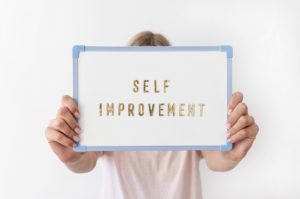Like I said in part one, a manager is the first buffer between an artiste and the world. As an artiste’s manager you are your acts’ biggest supporter, his/her biggest fan as well as his/her biggest critic. You have to support your artiste fully and always no matter what. Your support for him/her must be blind like love. If you don’t support your artiste ? How do you expect others to support him/her too? As a manager you have to give your all if possible to your artiste’s career.
Sometimes artistes feel they know it all and they are very selfish and protective of their music and as such refuse to see/hear the voice of reason at times. You have to humour him/her sometimes, encourage, direct, explain and always look for ways to make his next offering or performance better than the last one.
It is your job to observe every performance, the crowd reaction and his stage craft with a view to discussing with him/her on ways to improve or better his/her craft. Your job isn’t just to handle logistics, negotiate terms, sit and wait for bookings or opportunities to come your way, it also includes going out of your way to explore and exploit every opportunity or chance that you feel will expose your artiste to better times, good income, better music & performances and better days for everyone on the team. The artiste is the commodity, so you and everyone on the team have to seek out ways to market and sell the commodity to the world.
There’s nothing wrong with an artiste performing a FREE SHOW as long as it will benefit him/her positively, help him/her grow and add value to his brand/career. It might not be immediately but if you perform the right free event sometimes it can open doors quicker than a lot of paid gigs. Also without free shows or non paying events how else do you expect an artiste to hone and perfect his/her performance and/or stagecraft? How then will he/she look back and realize the things he/she could have done better so that next time they can truly kill the show proper not just by word of mouth.
Nothing teaches better than experience, nothing makes you more perfect than practice. And no matter how much an artiste rehearses it won’t be the same as actually performing live on stage, and what better way to get that than at a free event/show. A lot of managers and artistes assume that free shows are a waste of time because it won’t earn them any income or money but they are totally incorrect.
The problem isn’t that the show is FREE, the problem is that you put your artiste on a show/event/platform that doesn’t suit his/her genre of music, doesn’t work for his/her brand or his style of performance. Sometimes in a bid to get your artiste a gig you allow him/her to perform to an audience that is clearly not his/hers. E.G you know your artiste’s strong point is live performances yet you allow him/her to do a CD backing track performance. Or you know that the event is a street event not an intimate setting style gig yet you let your artiste who is a singer & vocalist perform just cos you wanna say he/she killed the show ??. It’s like asking an artiste to perform an RNB or slow song when obviously the crowd is millennial or gen Z and would love to see a dance or high energy performance instead of a slow track.
Or where you have an old skool 90s RNB crowd that would prefer a mellow cool performance and your artiste is a millennial who doesn’t know anything about how to please such a crowd. Every artiste feeds off the energy from his audience/fans and if they are giving off a negative one sometimes it can mess up a performance if the artiste isn’t an experienced/seasoned performer. So if you put your artiste in front of the wrong crowd you can kill his/her vibe and confidence.
As a manager you have to always learn from those around you, sometimes observe other colleagues at events or gigs and try to add what you learn to what you already know. Read, study, watch and learn from those before you and always try to be friendly with other colleagues especially at events. And when in doubt never hesitate to ask questions.
Also remember what works for artiste “A” may not work for artiste “B” cos each artiste is unique and peculiar in their own way so always do what will suit “your” artiste. Don’t ask your artist to dance when you know it’s not his/her strong suit, instead you can hire dancers to boost the performance and bring something different to his/her set.
Loyalty is key in every field and most especially in the music and entertainment industry. And as a manager you will be privy to a lot of detail/information about your artiste. You will sometimes see/hear him/her at his/her worst. Sometimes you may have to make excuses or even lie for them. As a manager your loyalty is always first to your artiste/client. While working with him/her and even after you no longer work for/with them. Whatever detail, confidential information, data you gain access to by virtue of the fact you guys are working or worked together will always remain privileged and confidential.
So no matter what happens between you and any artiste, you are expected as a good/great manager to keep his/her secrets or private information totally private even if it means taking it to your grave. A manager with a leaky or loose mouth cannot be trusted and in the music/entertainment industry word gets round and this may prevent you from getting prospective or new clients or even keeping existing ones.
I can go on and on but the simple truth is that many of those who call themselves managers are merely road managers or personal assistants. Nobody is perfect and none was born a manager but as long as you are open to learning and can easily adapt and improve everybody can be a good/great manager.



